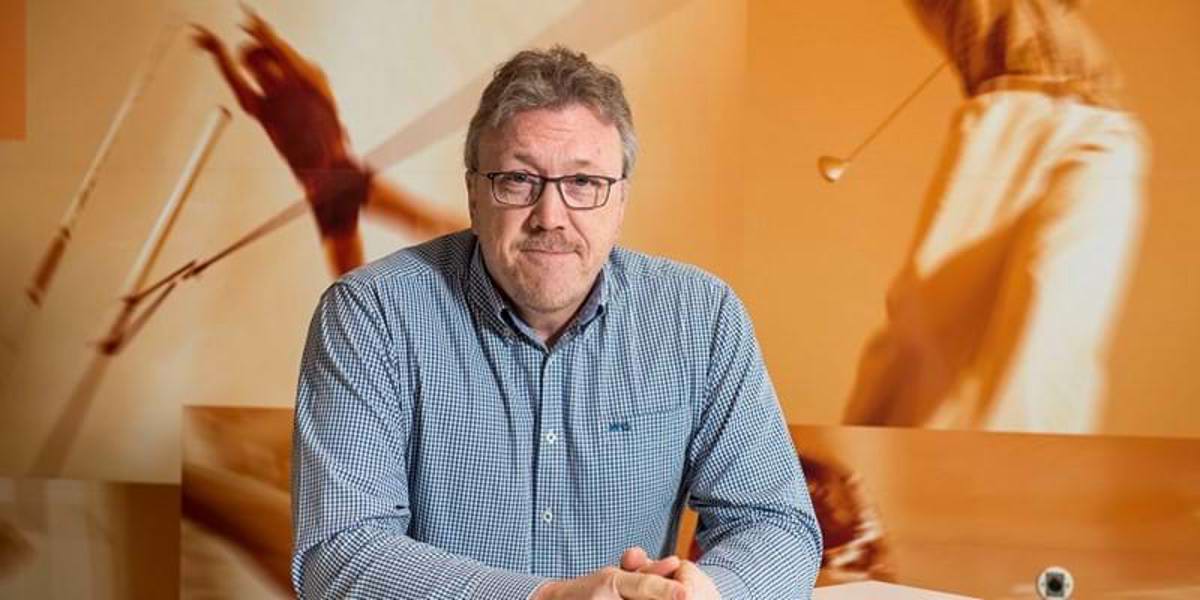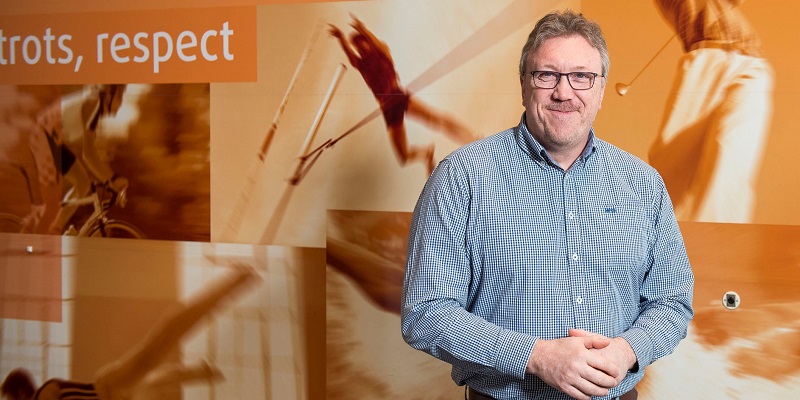How do you stay mentally healthy during the lockdown?
Reemt Borcherts 6 januari 2021
Switch again. Adapt to a new situation. Processing new information. The new lockdown demands a lot from us as a society. How can we best deal with this as athletes and people? We asked Paul Wylleman, our TeamNL expert in performance behavior and mentally advises our top athletes. "Try to look for a new structure."
Paul, just to start in general. A lockdown. What does that do to a person?
"Although the reactions to such a limitation naturally differ per person, you can say that many people often first feel insecure. This usually emerges in the run-up to the lockdown, a situation that hardly anyone in the Netherlands has ever experienced before. This creates tension and unrest about what is or is not possible. About what we can or cannot control ourselves."
"Those feelings can influence a person's motivation. The first lockdown turned the agenda of many top athletes and coaches. Goals that suddenly disappear and a lack of perspective can be discouraging. Not only did the long-term view change, but also the daily routine and the contact with others. Of course that applies to everyone. We find it difficult to quickly and forcefully adjust our rhythm of life. This often also has an impact on our emotions and our mental well-being."
Do not overload yourself with the negative sides and try to see what you have and what you can still go for
What is the biggest challenge we faced in sport during the first lockdown?
"When I look at elite sport, planning was a big issue during the first lockdown. In addition, regaining control of the situation was required. Athletes, coaches and staff members therefore started to look for solutions. How to train at home without the options you otherwise have? This meant everyone in top sport not only had to change their daily behavior but at the same time also look for solutions on how they could continue on the chosen path. Elite athletes and their coaches were usually also away from home. And now unexpectedly they were home for a longer time. How do you build up a daily training routine, taking into account, for example, your partner or your family?"
Changes with mental and social impact.
"Certainly for elite athletes who thought they would end their athletic career after the 2020 Games. Corona delayed career transitions and led sometimes to terminating the elite sport career. I am happy that we were able to quickly focus on the psychological impact of corona. Our recommendations were also adopted by the International Olympic Committee (IOC) and disseminated internationally. We also quickly called in our TeamNL network of psychologists. Often for a reflective conversation, sometimes for extra attention to psychological problems."
In sport for all, the loss of social ties is an important item. Can you explain why that matters so much to humans?
"We are social beings. This applies to all age groups. We all have a certain need for social interaction. You may remember the movie Cast Away, with Tom Hanks. He ends up on a desert island and befriends a washed-up volleyball which he transforms into Mister Wilson. That storyline symbolizes our need for interaction."

Paul Wylleman
How do you mean?
"If clubs can no longer fulfill the social function they had before, an anchor point unexpectedly disappears from our lives. This can cause a great loss for people who are a bit older or single. I would therefore certainly advise clubs to continue to invest in maintaining contact with their members. Look each other up online, for example, stay informed about each other. It can meet our need for social connection and contribute to our mental and social well-being. That side often gets snowed under the importance of our physical condition, but in my opinion it is just as significant."
What is your most frequently given advice to elite athletes and coaches?
"Naturally, a lot has changed with the arrival of the corona virus. Often it is first to pay attention to the emotions that have a strong impact on the athlete at that moment. It is good to express that disappointment and anger at changed plans. Problems sometimes accumulate in such an uncertain period. Solving those problems at the same time does not always work. It is therefore good to take that step by step."
"Bring structure to the maze of generally entangled challenges. Where should the attention go first and what can be addressed afterwards? What works and can be used as the basis of a new structure, and what needs to be improved? Athletes do this together with their coach or other staff members. If this does not work, they can contact the TeamNL experts. With our team of top sport lifestyle coaches and psychologists, or with the medical support staff."
Our mental and social well-being often gets snowed under the importance of our physical condition, but in my opinion it is just as significant
How can top sport set an example for the rest of society in this area?
"Top athletes and their coaches analyze and look for solutions. Often thanks to a solution-oriented attitude, in combination with creativity and resourcefulness. They use reflection building up from a concrete basis. Even in this special situation, therefore, not everything needs to change. They adopt what I call a "credit perspective".
What does that mean?
"That you start with what is going well and then not only maintain it, but even strengthen it. For example, there were coaches who worked with their team on topics that they previously had less time for or now wanted to devote more attention to. Such as robust resilience and rebound resilience, dealing with setbacks and uncertainty or with their motivation and planning."
"Athletes and coaches will often switch quickly and take action to maintain structure and control as best as possible. And in doing so, they will also appeal to their social network, their coach or other team members, their partner or friends. Those qualities are pleasant to have for each of us, which is especially true in the world in which we have now ended up. The current situation may also offer scope and new opportunities. Like time to develop yourself."
What does that look like in practice?
"Suppose you are an adult field hockey player. Due to the measures taken in view of corona you can no longer practice your sport. Now, do not think: ‘This is it’. Try to think of alternatives. Which sports are still allowed? Bicycle? To walk? Running? Can you meet your needs in this way? Or watch TV or search the internet, such as Fit met TeamNL, for exercises to keep fit. Don't give up. Dare to explore new options and persevere. Do not burden yourself only with what you miss and try to see what you have and what you can still go for fully."
And the want for social interaction?
"Of course that can be lacking. Try for example to keep in touch online while jogging or walking. This way you can stay in contact in an alternative way. It is indeed not the same. However, with an attitude to let go of your normal daily routine and expectations in combination with creativity and social support you can regain some of the pre-lockdown context as best as possible."




